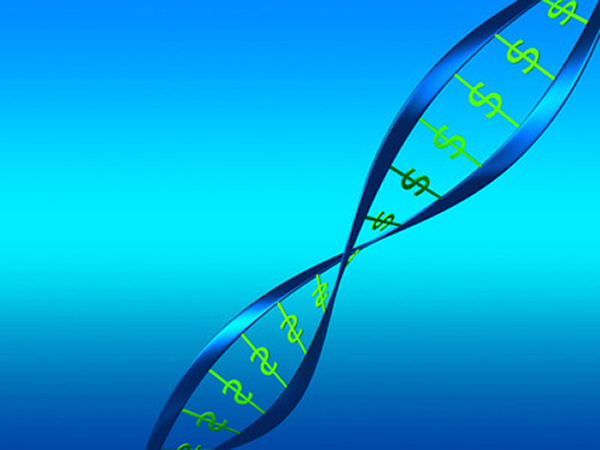
A new study confirms that multi-gene panel testing is cost-effective compared to single-marker testing, but could deliver more value if patients received the targeted therapy indicated by the test results. In the study, which was published 22 June 2019 in JCO Clinical Cancer Informatics,researchers estimated the cost effectiveness of managing therapeutic selection using multi-gene versus single-gene testing using data for nearly 6,000 patients with NSLC. They estimated that multi-gene panel sequencing (MGPS) was moderately cost effective compared to single-marker genetic testing (SMGT).
“In summary, our cost-effectiveness analysis of MGPS versus SMGT provides evidence for health insurers who must consider cost and value and budget impact when weighing coverage policies for MGPS,” wrote the authors of the study, who were led by a team from the Fred Hutchinson Cancer Research Center. They estimate that MGPS costs about $8,800 more than SMGT, but results in slightly longer life-years gained by patients (1.20 for MGPS versus 1.14 for SMGT), suggesting that if an insurer covers SMGT it should also cover MGPS.
Nearly 230,000 people are diagnosed with NSCLC each year, according to the National Cancer Institute. NSCLC is difficult to treat with standard therapies: radiation and chemotherapy. Targeted therapies allow doctors to treat their patients based on the particular genetic mutations found in their tumor cells.
In the current study, researchers found actionable mutations in 30.1 percent of non-small lung cancer (NSLC) patients in the study using multiple-gene testing. But, only 21.4 of the patients who underwent MGPS got the targeted treatment that the test indicated they needed. The reasons for this are unclear and may have had to do with the unavailability of the indicated targeted therapies. Still, the number of targeted therapies will only increase and so will the need for cost-effective testing to personalize cancer treatment in general and NSLC treatment in particular, the authors wrote.
The current study funded by the Personal Medicine Coalition (PMC), a coalition of public, private and non-profit organizations advocating the use of the personal medicine approach and related services and products in clinical practice.
“This research underlines the importance of ensuring that clinical practices keep pace with scientific progress in personalized medicine so that we can maximize the benefits of diagnostic tests that can improve patient care and make the health system more efficient by ensuring that safe and effective targeted therapies are prescribed to those patients who will benefit,” said PMC President Edward Abrahams in a press release.
Researchers used data provided by Flatiron Health, researchers examined clinical and cost information associated with the care of 5,688 patients with NSCLC treated between 2011 and 2016, separating them into cohorts who received MGPS tests that assess at least 30 genetic mutations at once and those who received only SMGT of less than 30 genes. They used simulation modeling to estimate the expected cost of MGPS and SMGT in NSCLC.
No study has directly compared the cost effectiveness of MGPS and SMGT. Still, the authors point out that theirs was a retrospective study and represents a snapshot in time. They suggest that prospective studies are needed that compare the two approaches with both clinical and cost endpoints in mind. They also suggest that their mathematical model be updated as new clinical and cost data become available











